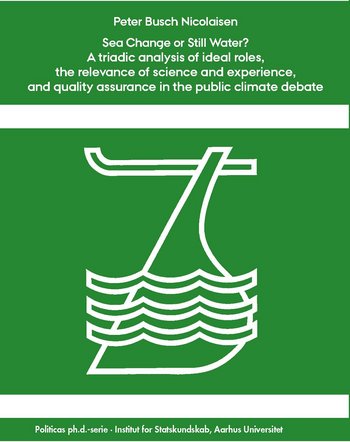Peter Busch Nicolaisen
Sea change or still water? A triadic analysis of ideal roles, the relevance of science and experience, and quality assurance in the public climate debate

Due to its uncertain, acute, politicized, and high-stakes nature, some have proposed that the climate challenge might stimulate a transformation of the way science and society interact. Climate scientists and climate journalists could be tempted, for example, to become increasingly involved in advocacy, while citizens are expected to play a more active part in climate science communication. This dissertation empirically probes whether such a reconfiguration is underway. It does so by exploring how the projected shift resonates with three main actors in climate science communication: climate scientists, climate journalists and citizens. With its three-dimensional perspective, the dissertation offers a novel approach to the study of climate science communication. By means of focus groups and a literature review, it investigates how the three actors perceive their own and each other’s ideal roles in the societal climate debate. Relatedly, it examines their views on how scientific and experiential knowledge should feature in public deliberations of climate-related matters and how the quality of such discussions should be ensured. The dissertation shows that the actors generally adhere to traditional notions of what the roles of climate scientists and climate journalists should entail, while the ideal role of citizens is contested. It further demonstrates that scientific knowledge is seen as certain, yet narrow in scope, whereas citizen input is valued in applied domains of science but disregarded in more esoteric fields. Lastly, the dissertation confirms that journalists continue to be the preferred gatekeepers of the public climate debate.
![]() Ophavsretten tilhører Politica. Materialet må ikke bruges eller distribueres i kommercielt øjemed.
Ophavsretten tilhører Politica. Materialet må ikke bruges eller distribueres i kommercielt øjemed.